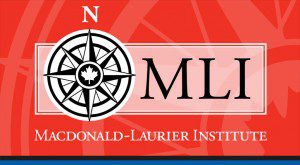 Australian and Canadian policy experts establish a framework for cooperation on personnel exchanges, joint procurement and mutual recognition of territorial claims
Australian and Canadian policy experts establish a framework for cooperation on personnel exchanges, joint procurement and mutual recognition of territorial claims
OTTAWA, April 7, 2016 – Canada and Australia have much to gain from working together on their shared interests in polar areas, a new Macdonald-Laurier Institute commentary finds.
The authors, Andrew Pickford and Jeffrey F. Collins, say increasing resource competition and the effects of climate change have significantly stepped up interest in Arctic and Antarctic regions.
Now countries such as China, Russia, India and Brazil are looking to further their influence in the world’s polar regions.
To read the full commentary, titled “Toward A New Polar Partnership: A framework for Canadian-Australian cooperation”, click here.
Why should Canada and Australia collaborate? For one, they have a lot in common: Both operate within federal Parliamentary systems and have a shared British legal and cultural heritage.
They also both have a lot to gain. In the next few decades the Northwest Passage sea route between the Atlantic and Pacific oceans will offer a big opportunity to boost Canada’s economy. Australia, meanwhile, will need to be on guard against the militarization of Antarctica and ensuring the continent does not become a contested southern flank.
Pickford and Collins identify three key areas on which Australia and Canada should focus their cooperation:
- Personnel exchanges: Canada has over a decade of experience in routine naval and coast guard operations in polar environments. Australia – due largely to its warmer climate – will need to improve its ability to respond to cruise ship accidents, research station emergencies and resource challenges. Pickford and Collins say that’s why Australia should start sending Royal Australian Navy and Air Force personnel on rotations with Canadian Armed Forces units performing regular operations in the Arctic. There are also opportunities for sharing expertise in strategic planning at the bureaucratic level, between Canada’s Department of National Defence and Australia’s Department of Defence.
- Joint procurement: Canada and Australia have the chance to share equipment, thanks to their opposing calendar cycles. One avenue for collaboration is for Australia to rent out its soon-to-be built icebreaker to the Canadian Coast Guard during Canada’s winter months. This would allow Canada to save money by retiring the 47-year-old CCGS Louis St. Laurent. There are also opportunities for Canada to enter into a temporary rental arrangement for Australia’s maritime intelligence and surveillance aircraft.
- Mutual recognition of territorial claims: Neither Canada nor Australia currently has any state acknowledgement of their respective territorial claims. Mutual acknowledgement between Canada and Australia would cement a growing relationship between two like-minded states and bolster each other’s claims to the international community. With mutual recognition via a joint polar statement, Canada and Australia can set the tone for polar developments over the 2020s and 2030s.
***
Andrew Pickford works between Perth, Australia and Mont-Tremblant, Canada in the areas of strategy, economic analysis and natural resources with a range of organisations, both private and public. He is currently an economic adviser with the Chamber of Commerce and Industry Western Australia, and affiliated with a number of research institutes in that country including the Energy and Minerals Institute, University of Western Australia, and the PerthUSAsia Centre.
Jeffrey F. Collins is a research associate with the Atlantic Institute for Market Studies and a lecturer in political science at the University of Prince Edward Island. His research interests include defence policy and procurement, Canadian politics public policy, and international security. Before joining AIMS, Jeff was a political staffer and researcher for several provincial and federal politicians including the Ministers of National Defence and Veterans Affairs, New Brunswick’s Legislative Secretary for Military Affairs, and the Chair of the Senate Committee on National Security and Defence.
The Macdonald-Laurier Institute is the only non-partisan, independent national public policy think tank in Ottawa focusing on the full range of issues that fall under the jurisdiction of the federal government.
For more information, please contact Mark Brownlee, communications manager, at 613-482-8327 x105 or email at mark.brownlee@macdonaldlaurier.ca.





